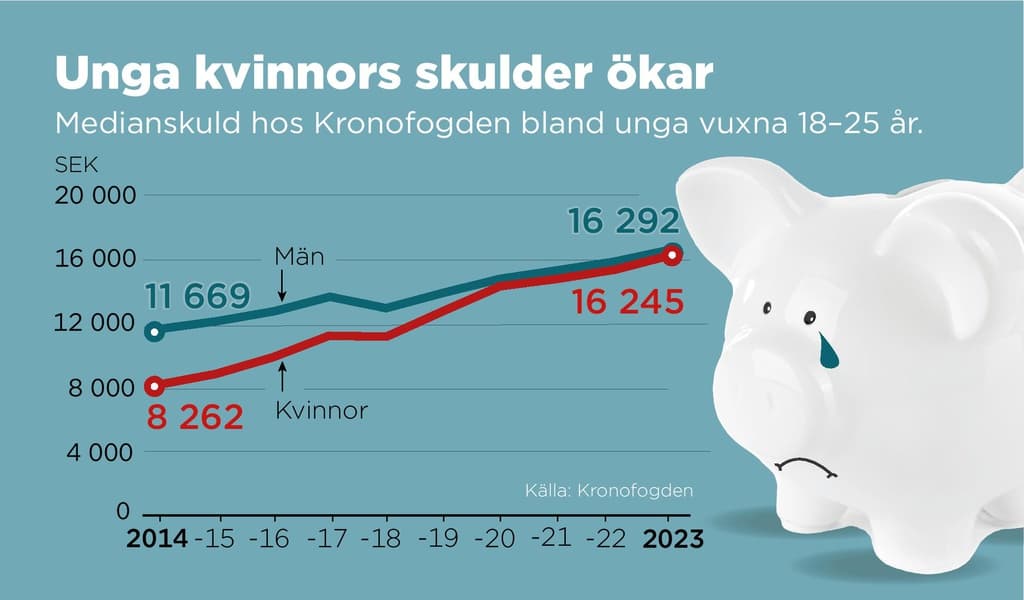Over the past ten years, young women's debts to the Enforcement Authority have more than doubled. Now they have equally large debts as young men.
It's very easy to shop for money you don't have today, says Davor Vuleta at the Enforcement Authority.
Ten years ago, young men, 18-25 years old, who ended up at the Enforcement Authority had a median debt of around 11,700 kronor, while young women's was just under 8,300 kronor. But now the women have almost caught up, with a median debt of approximately 16,250 kronor, which is only 50 kronor lower than the men's.
According to the compilation of debt among young adults made by the Enforcement Authority, the increasing debt amounts among young women are strongly linked to consumption. The fact that debts are increasing as they do is, according to the authority, a sign of changed consumption patterns.
We've gone from the norm of saving now and buying later to buying now and paying later. It's very easy to shop for money you don't have today; you don't even need to leave the house, says Davor Vuleta, private economist and spokesperson for the Enforcement Authority.
Larger Amounts
The number of indebted individuals in Sweden has decreased over the past ten years due to the economy being in a boom with low unemployment and low interest rates.
However, the debts are larger, which can make it tougher to get out of debt and the Enforcement Authority's register. We need to use coercive measures to get the debts paid, and it's extra tragic when it comes to young people who are entering adulthood, says Davor Vuleta.
The number of young people with debts to the Enforcement Authority is currently 31,314. For those who get into debt early in life, the consequences can be significant, and Davor Vuleta warns against buying on credit, even if it's just small amounts.
A third of the payment claims that come to us are for 800 kronor or less, but the hundreds become thousands quickly when interest and fees are added. The consequences are just as serious regardless of whether the debt is 1,000 kronor or 100,000 kronor, he says.
Common Registers
Debts and payment remarks can lead to wage garnishment and even exclusion from the rental market and certain jobs. It's also not possible to take out loans from established banks to pay off debts, and many end up with quick-loan companies with high interest rates and fees.
To address young people's debt, the Enforcement Authority is calling for more stringent credit checks and common debt and credit registers.
Credit providers need to be able to see who has just been granted credit, and it shouldn't be possible to borrow money if you're not creditworthy, says Davor Vuleta.
Corrected: An earlier version of the article contained incorrect and misleading figures in both the graphic and text.






